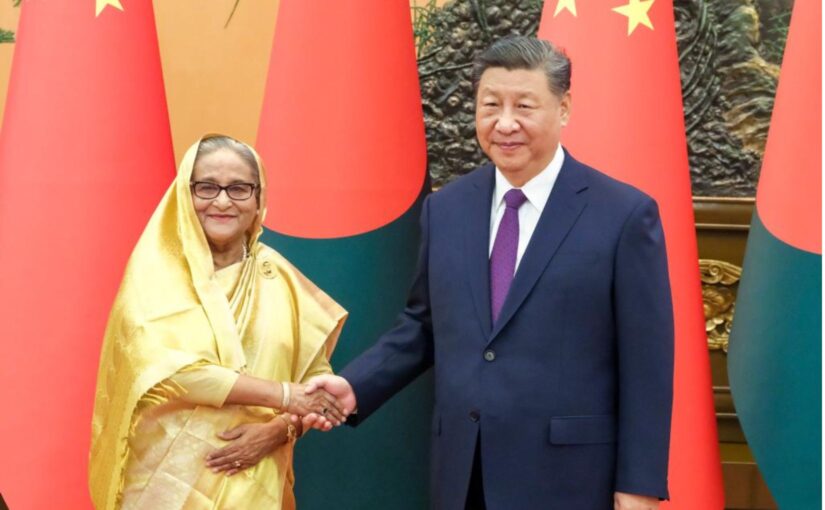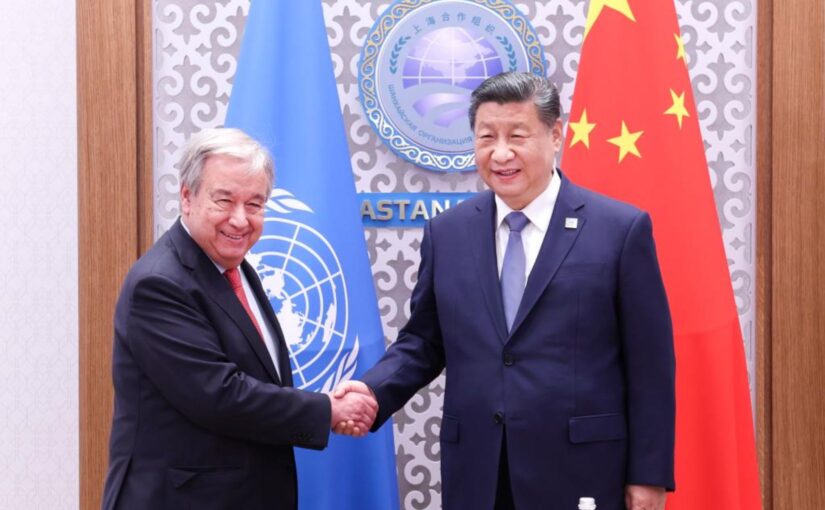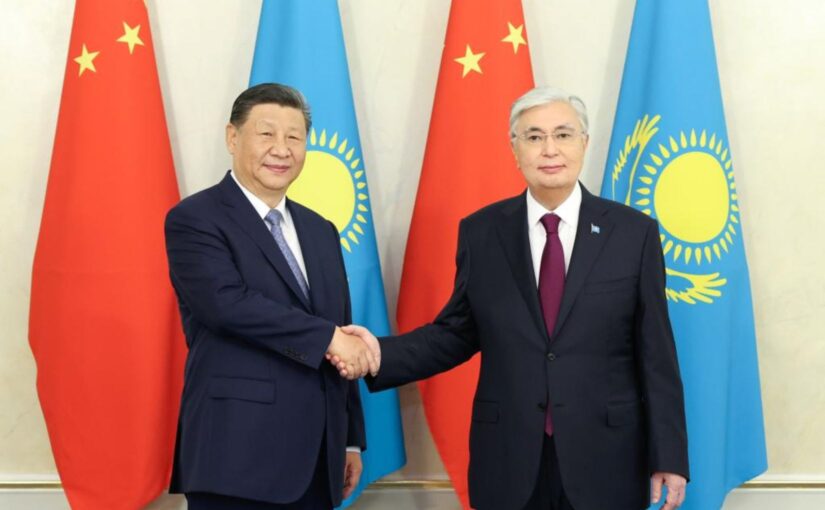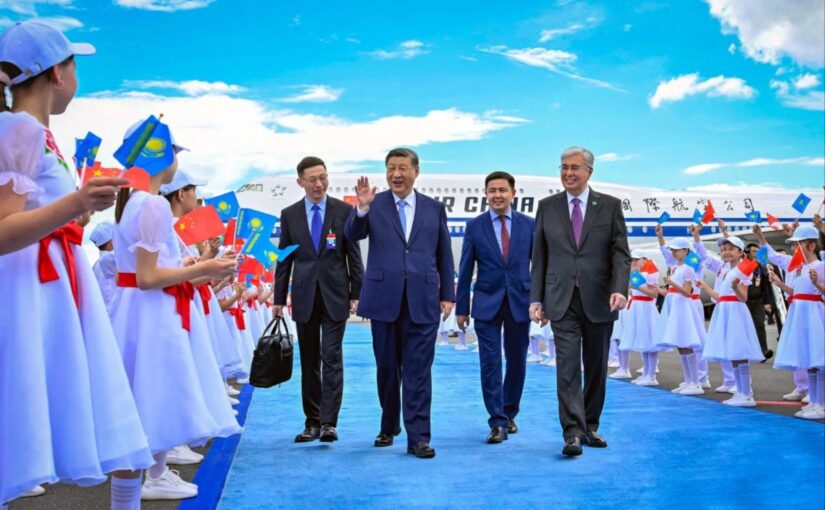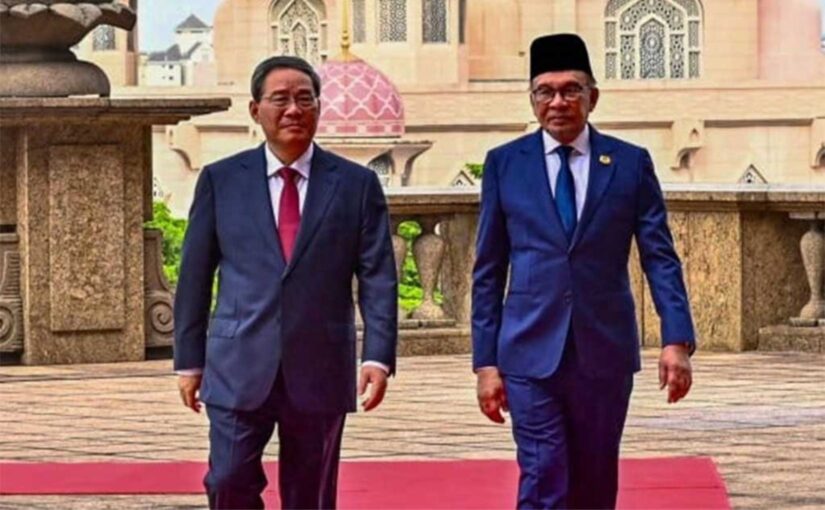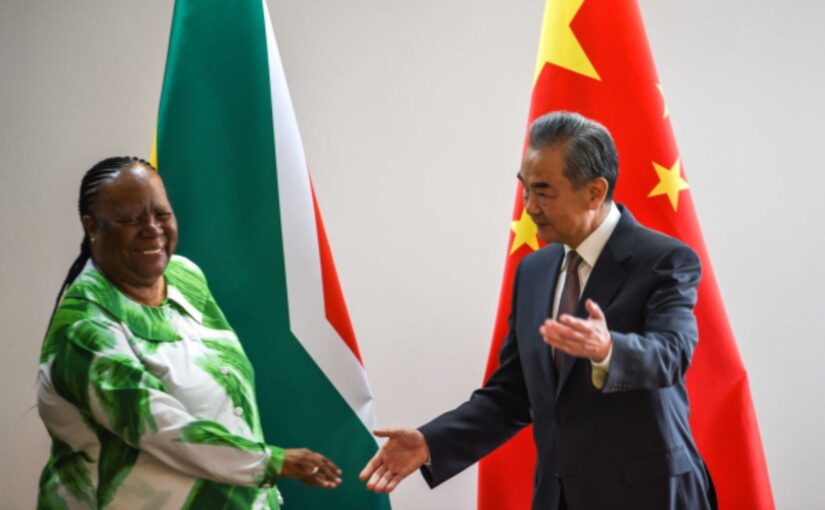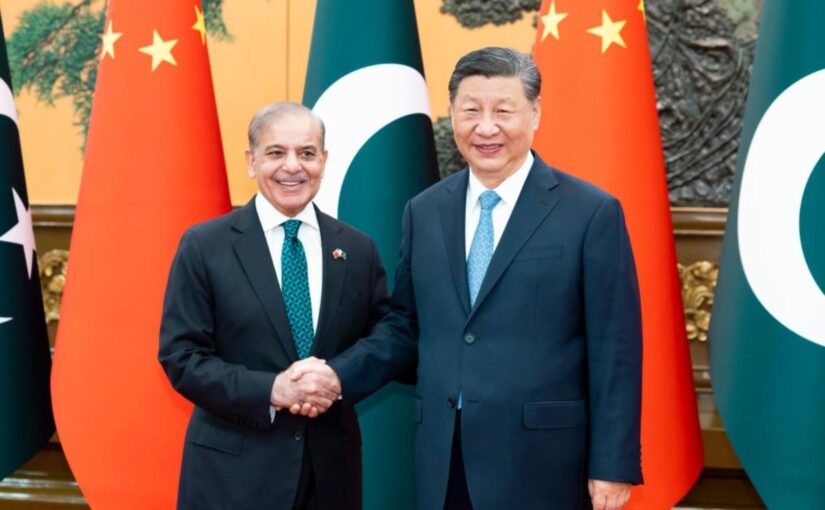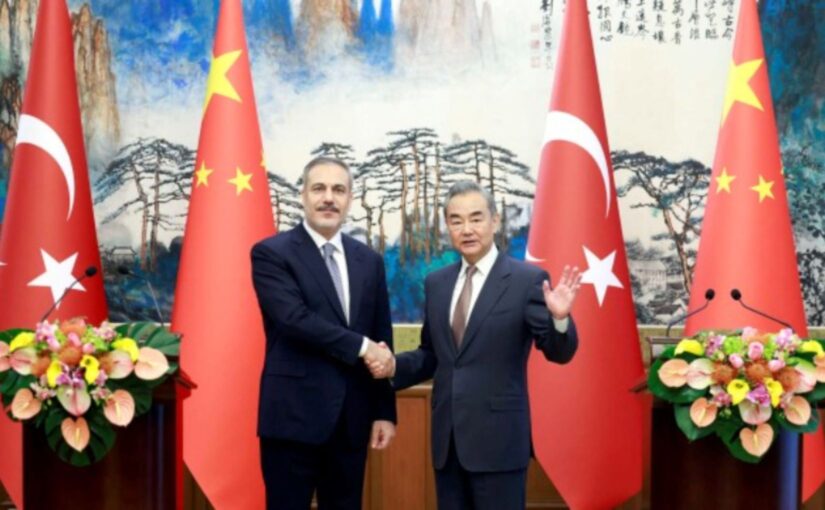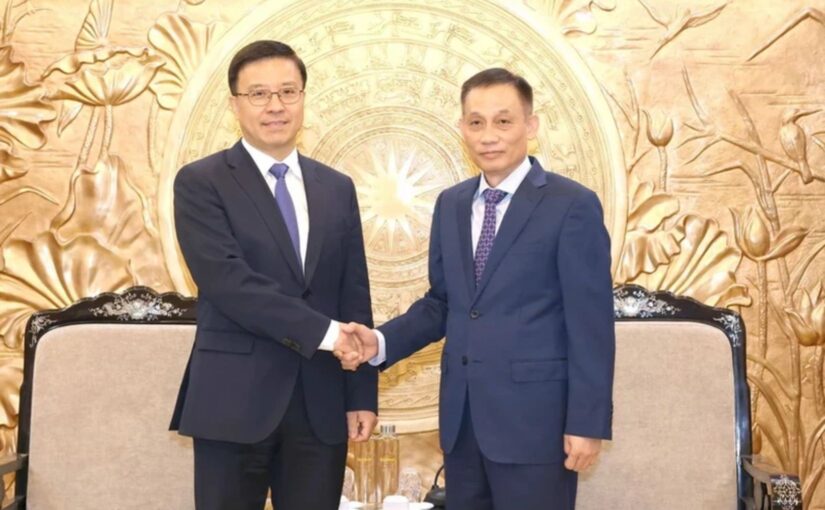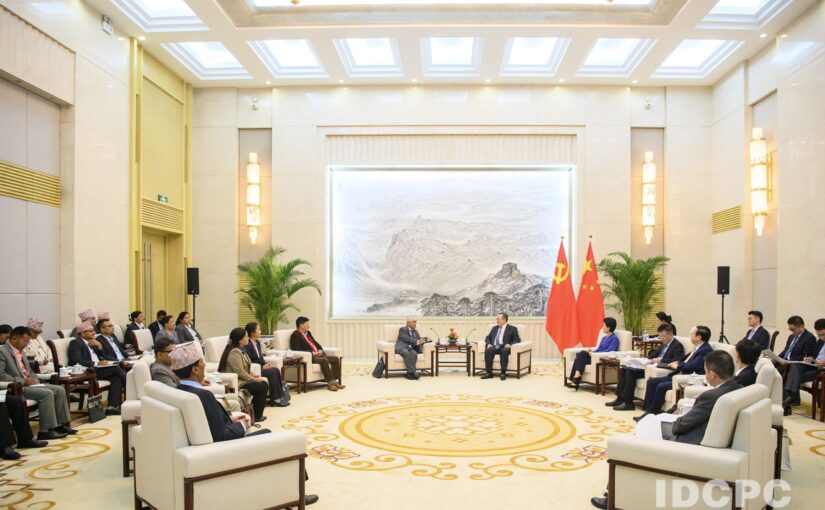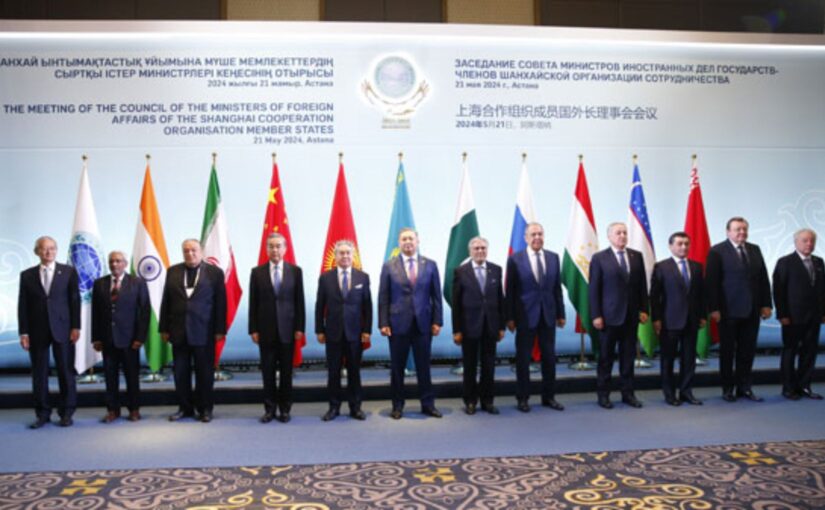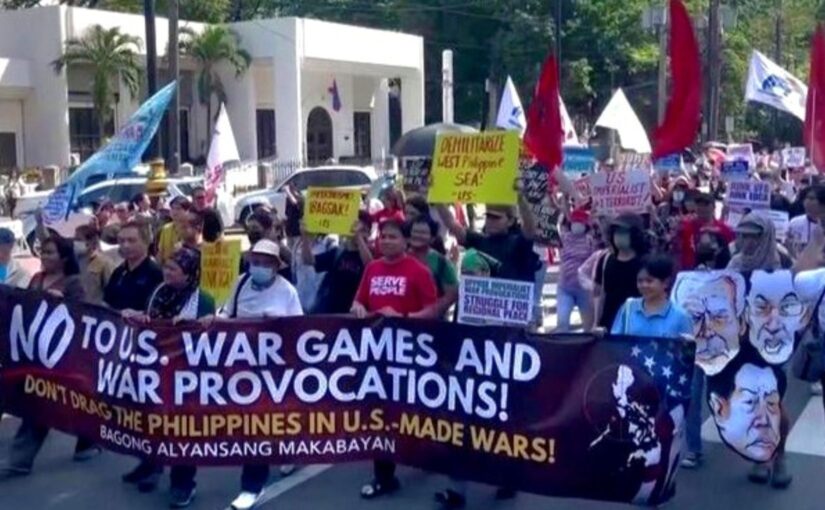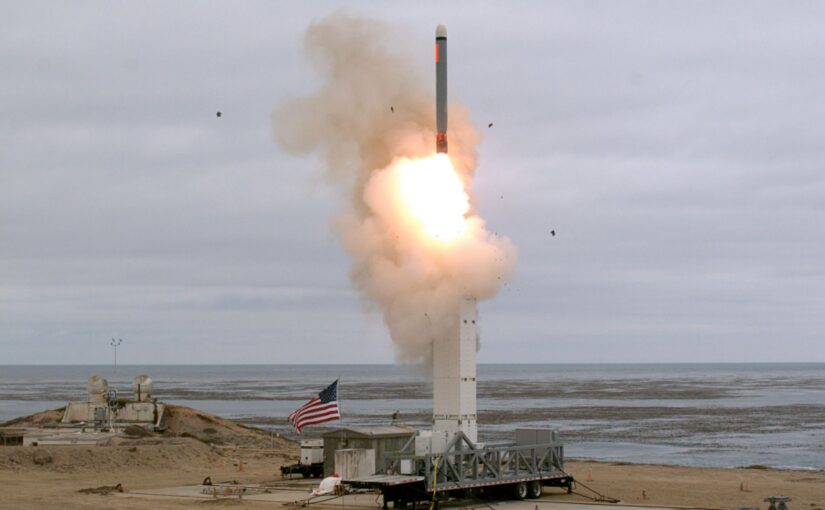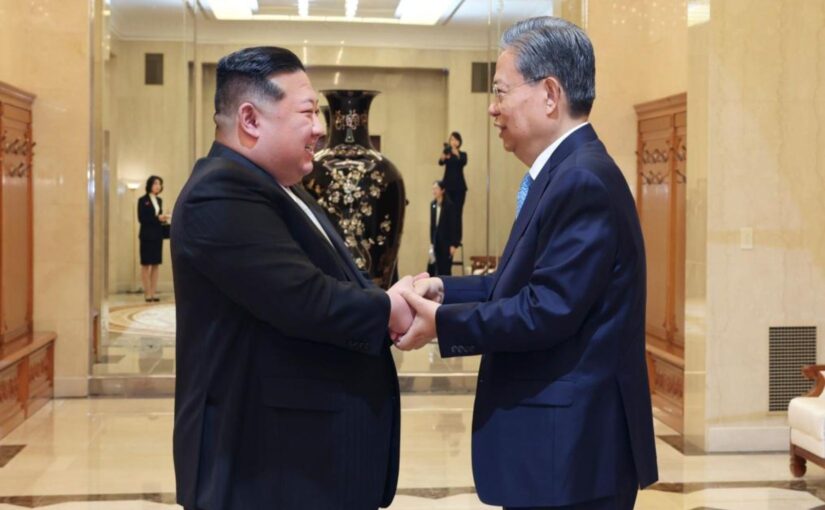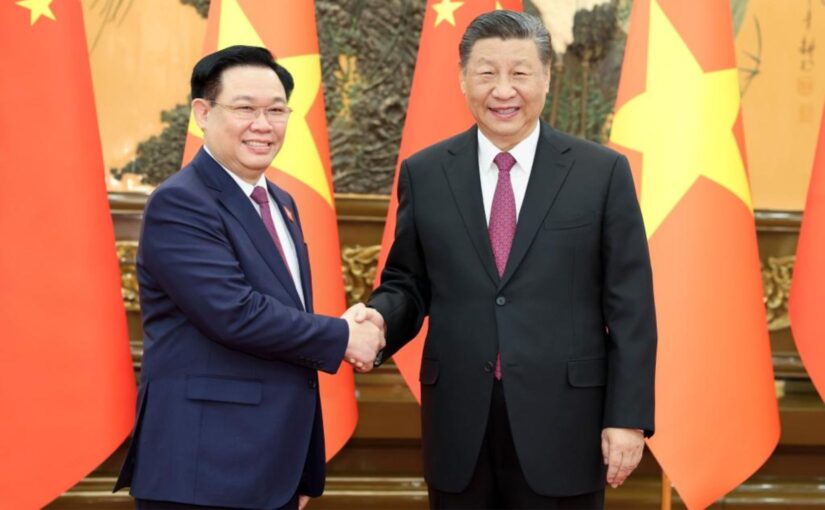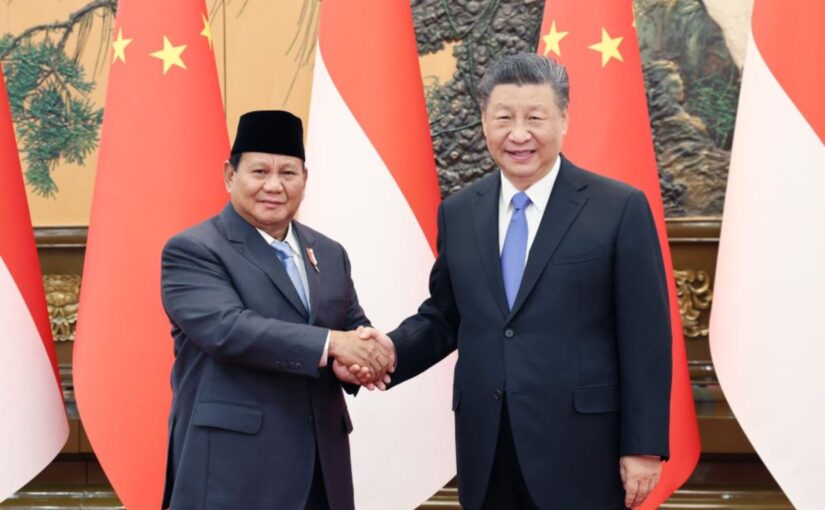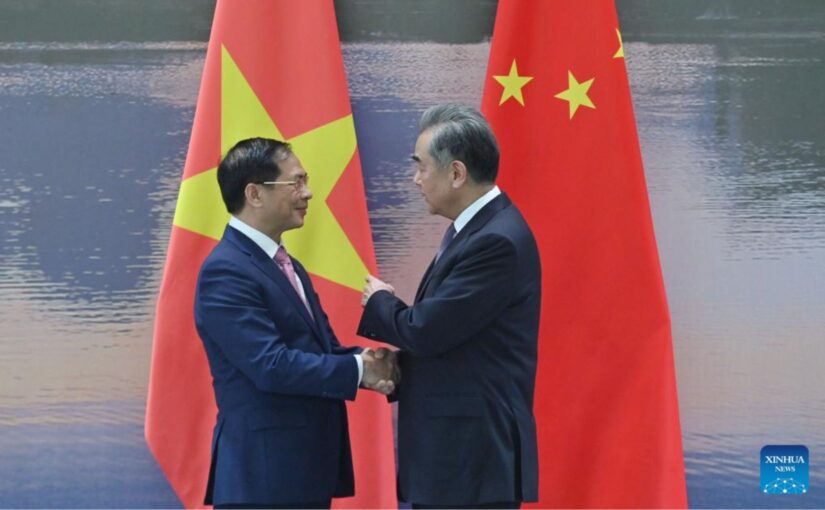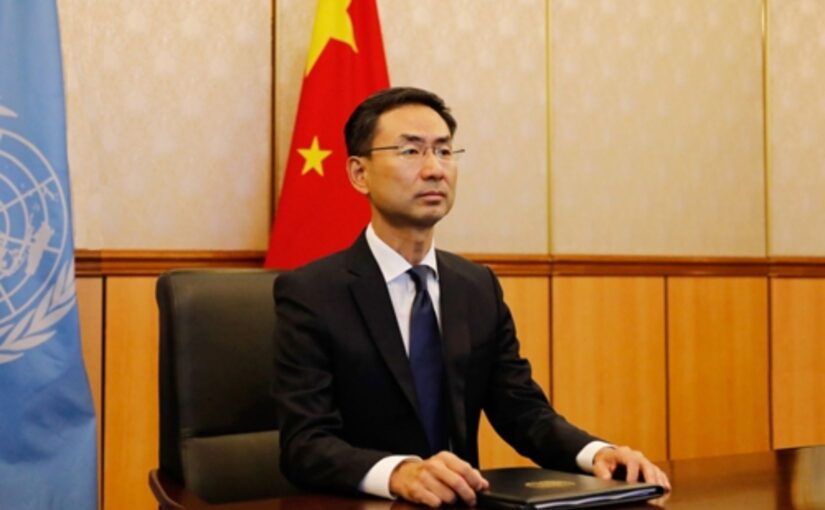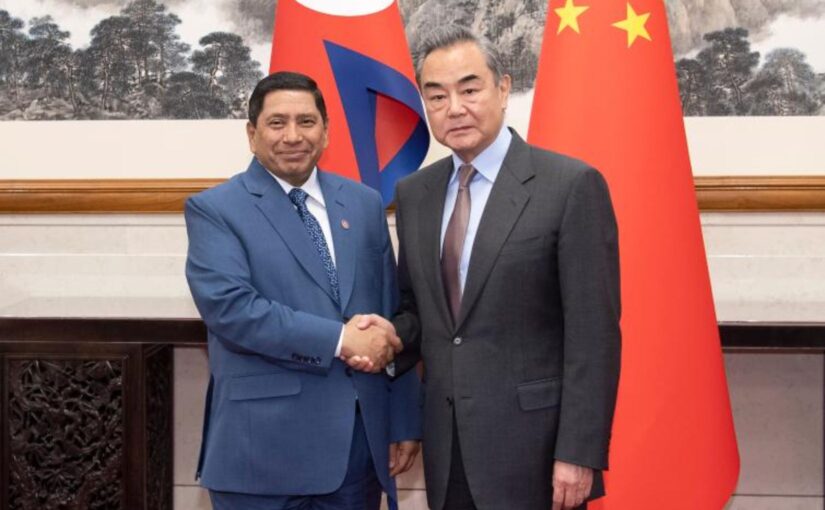Prime Minister of Bangladesh Sheikh Hasina visited China from July 8-10 at the invitation of her Chinese counterpart Li Qiang.
Meeting with President Xi Jinping on July 10, the two leaders announced that they had elevated their relations to those of a comprehensive strategic cooperative partnership. Xi said that China and Bangladesh have always respected and supported each other, treated each other as equals and cooperated for win-win results since the establishment of diplomatic ties, setting an example of friendly exchanges and mutually beneficial cooperation between countries, especially among Global South countries.
China cherishes the profound friendship forged by the older generation of leaders of the two countries and is willing to take the 50th anniversary of establishing diplomatic ties next year as an opportunity to deepen high-quality Belt and Road cooperation, expand cooperation in various fields, and promote the steady and long-term development of China-Bangladesh comprehensive strategic cooperative partnership.
Xi’s reference to the profound friendship forged by the older generation of leaders of the two countries is particularly significant. Sheikh Mujibur Rahman, the Founding Father of Bangladesh, who is also the father of Sheikh Hasina, visited China in 1952 and 1956, where he formed friendships with the first generation of Chinese leaders, including Chairman Mao Zedong and Premier Zhou Enlai. On his 1952 visit, he participated in the Asia and Pacific Rim Peace Conference, where he delivered a rousing speech in Bangla, putting the language movement in the then East Pakistan on the international map.
China, Xi continued, is ready to work with Bangladesh to enhance coordination on international and regional affairs, strengthen cooperation within multilateral frameworks such as the United Nations, uphold the common values of humanity, and promote the building of a community with a shared future for humanity.
Hasina said the Bangladeshi side admires China’s great achievements in overcoming various difficulties and challenges and continuously improving people’s living standards under the brilliant leadership of President Xi. Bangladesh is firmly committed to advancing the cause of national liberation, poverty reduction and development, and thanks China for its valuable support in this process.
Meeting with Li Qiang the same day, the Chinese Premier said that his country will always give priority to developing relations with Bangladesh in its neighbourhood diplomacy, deepen mutual understanding and give firm support to Bangladesh on issues concerning each other’s core interests and major concerns.
Hasina expressed appreciation for China’s valuable support over the years, saying that China has made remarkable development achievements and become an example for other developing countries. She said Bangladesh will continue to actively participate in the Belt and Road Initiative (BRI), strengthen cooperation with China on international multilateral affairs, push for further all-round development of bilateral relations and safeguard world peace and stability.
In their joint statement on the establishment of a comprehensive strategic cooperative partnership, the Bangladesh side “congratulated the Chinese side on the 75th anniversary of the founding of the People’s Republic of China, and applauded China’s historic achievements and transformation in economic and social development in the new era. Bangladesh lauded China’s efforts to build itself into a great modern socialist country in all respects and advance the great rejuvenation of the Chinese nation on all fronts through the Chinese path to modernisation and expressed the sincere wish for China to realise the Chinese dream of national rejuvenation as scheduled.
“The Chinese side congratulated the People’s Republic of Bangladesh on holding the election of the 12th National Parliament, and congratulated the Bangladesh Awami League led by Prime Minister Sheikh Hasina on winning the general election.”
Leaders of the two countries agreed to stay committed to the Five Principles of Peaceful Coexistence, carry forward the long-standing friendship, foster greater synergy between development strategies of the two countries, advance the Belt and Road cooperation, and elevate the bilateral relationship to a comprehensive strategic cooperative partnership.
The two sides decided to take the opportunity of celebrating the 50th anniversary of the establishment of China-Bangladesh diplomatic relations in 2025 to plan together for the future development of bilateral ties and take the China-Bangladesh relationship to another new height.
China commended Bangladesh for being the first country in South Asia to join and take part in the BRI and, having reviewed significant Chinese contributions to Bangladesh’s national development, the statement continued:
“The Chinese side expressed readiness to continue providing assistance to Bangladesh to the best of its capacity and positively consider the possibility of building hospitals and bridges and renovating convention centres to support economic and social development of Bangladesh.”
Reflecting the international trend to dedollarisation, the two sides agreed to enhance cooperation in financial regulation and encouraged increased use of local currency settlement in bilateral trade.
The statement said that bearing in mind that this year marks the 70th anniversary of the Five Principles of Peaceful Coexistence, the two sides agreed on the need to carry forward the Five Principles of mutual respect for sovereignty and territorial integrity, mutual non-aggression, mutual non-interference in each other’s internal affairs, equality and mutual benefit, and peaceful coexistence, with a view to jointly building a community with a shared future for Asia and for humanity. The two sides agreed to firmly safeguard the international system with the UN at its core, the international order underpinned by international law, and the basic norms governing international relations based on the purposes and principles of the UN Charter, uphold true multilateralism together, promote greater democracy in international relations, and work to foster an equal and orderly multipolar world and a universally beneficial and inclusive economic globalisation.
China also welcomed Bangladesh’s bid for BRICS membership and its interest in associating with the Shanghai Cooperation Organisation (SCO).
The two sides reiterated that the fundamental way out of the ongoing grave crisis in Gaza lies in the implementation of the two-State solution and the establishment of an independent State of Palestine. Relevant resolutions adopted by the UN Security Council are binding and should be enforced effectively to achieve an immediate, unconditional and lasting ceasefire. The two sides called on the international community to address the question of Palestine with a greater sense of urgency and step-up efforts to facilitate the resumption of peace talks and to achieve enduring peace.
Regarding the situation of the Rohingya people, a Muslim minority in Myanmar’s Rakhine State, who have taken refuge in Bangladesh, the two sides share the view that early repatriation is the only way to resolve the issue. They call on all parties in Myanmar to bridge their differences through dialogue and consultation and underscored the cessation of hostilities in Rakhine State as soon as possible. The Bangladesh side expressed its appreciation to and requested China to continue playing a constructive role to facilitate dialogue for the peaceful settlement of the issue concerning the displaced people from Rakhine State. The Chinese side commended efforts made over the years by Bangladesh to provide humanitarian assistance for the displaced people and expressed support for Bangladesh and Myanmar to find a mutually acceptable solution through friendly consultations and following the arrangements on repatriation existing between the countries. China will continue to provide support for this purpose to the best of its abilities, including providing a platform for dialogue to help achieve early repatriation of the displaced people.
The following articles were originally published by the Xinhua News Agency.
